
Nicolaas Bohnen, MD, PhD, professor of radiology and neurology at the University of Michigan, discussed the main takeaways from his keynote lecture on posture and gait in Parkinson disease presented at the 2023 MDS Congress.

Nicolaas Bohnen, MD, PhD, professor of radiology and neurology at the University of Michigan, discussed the main takeaways from his keynote lecture on posture and gait in Parkinson disease presented at the 2023 MDS Congress.

The president of the ANA and the chair of the annual meeting programming committee provided perspective on the upcoming ANA Annual Meeting and what clinicians may get out of the meeting. [WATCH TIME: 7 minutes]
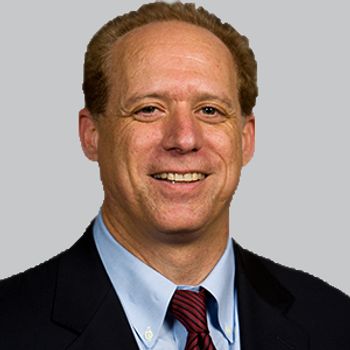
More than a 40% improvement in ON time without troublesome dyskinesia occurred as patients had their treatment titrated.

On average, clinician-rated TD severity, measured by AIMS, and patient-reported assessment of the physical, social and emotional impact of TD, measured by TDIS, decreased with one-capsule, once-daily valbenazine over 48 weeks.
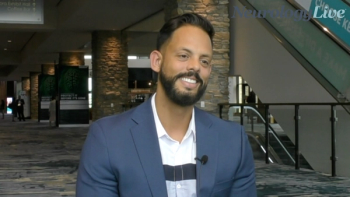
The associate professor in the department of population and quantitative health sciences at Case Western Reserve University School of Medicine talked about striving to understand and address the disparities among Latinx patients with multiple sclerosis. [WATCH TIME: 2 minutes]

When compared with levodopa-sparing agents, treatment levodopa alone resulted in significantly better patient-rated Parkinson’s Disease Questionnaire activities of daily living and summary index scores.

Parkinsonian syndromes, including multiple systems atrophy and progressive supranuclear palsy, have similar symptoms to Parkinson disease but are more distinct and each have corresponding therapies that are available for them.
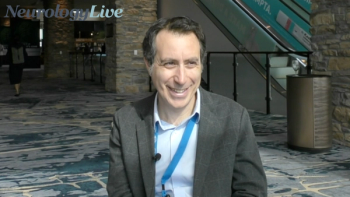
The associate professor of neurological sciences at the University of Vermont in Burlington discussed the persistent issue of delayed and misdiagnoses among patients with multiple sclerosis, highlighting the need to improve accurate diagnosis. [WATCH TIME: 3 minutes]
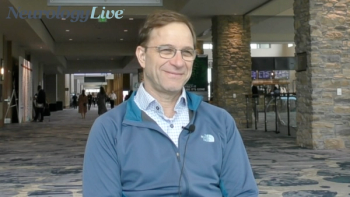
The Melissa and Paul Anderson President’s Distinguished Professor of Neurology, Perelman School of Medicine, University of Pennsylvania, talked about the promising potential of BTK inhibitors in treating both relapsing and progressive forms of multiple sclerosis. [WATCH TIME: 6 minutes]

Despite the challenge of distinguishing tics from extra movements, machine learning technology could potentially help researchers with reducing time spent analyzing video recordings of patients with tic disorders.

Swallowing difficulties, a major concern for patients with Parkinson disease, occurred rarely in the study, and were spontaneously resolved over time.

The distinguished investigator at the National Institutes of Health provided insight on the topic of globalizing Parkinson disease genetics, and how it may lead to potential disease-modifying therapies.

Previous neuroimaging studies in Parkinson disease suggest an altered interaction at a structural and functional level between cortical and subcortical areas of the brain that each contribute to gait dysfunction.
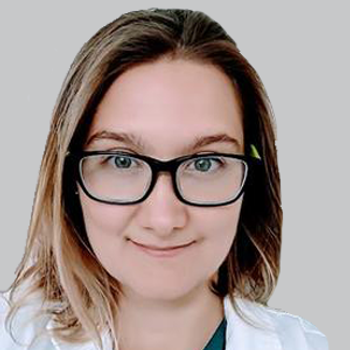
Patients treated with the probiotic saw benefits in non-motor symptoms such as sleep, fatigue, and gastrointestinal outcomes.
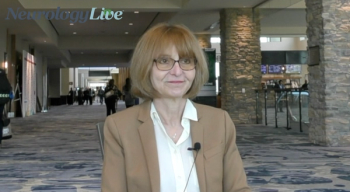
The professor of neurology at Washington University School of Medicine discussed the growing sense of hope among patients with progressive multiple sclerosis as providers gain an understanding in treating this form of the disease. [WATCH TIME: 3 minutes]

After a year of treatment, patients showed significant improvements in ON time without troublesome dyskinesia, with more apparent effects observed in the high-dose group.

Lixisenatide, commonly used to treat type 2 diabetes, has the ability to cross the blood brain barrier and has shown neuroprotective properties in preclinical models of PD.
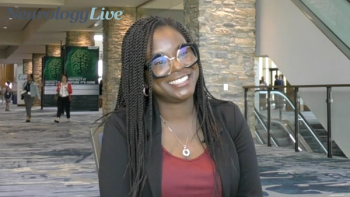
The assistant professor at Queen’s University discussed results from a pilot trial that evaluated the impact of a dyadic physical activity intervention among both caregivers and patients with multiple sclerosis. [WATCH TIME: 3 minutes]
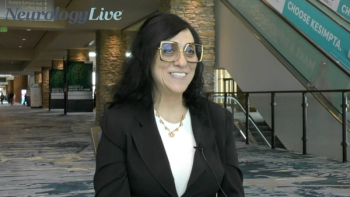
The assistant professor at Hunter College talked about the importance of prioritizing accurate localization, appropriate diagnostic tests, and patient communication for effective neurological diagnosis, prognosis, and treatment. [WATCH TIME: 3 minutes]
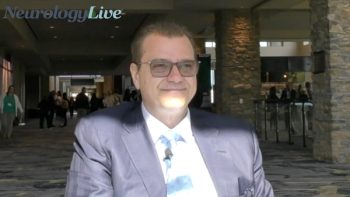
The director of the Buffalo Neuroimaging Analysis Center talked about a study that explored cognitive decline in patients with early multiple sclerosis, underlining the significance of addressing cognitive impairment in the early stages of the disease. [WATCH TIME: 3 minutes]
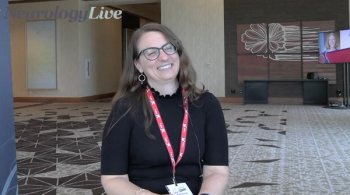
The headache specialist at the Hartford Healthcare Headache Center discussed findings from a study that revealed altered retinal vasculature in individuals with migraine with aura, indicating potential retinal biomarkers for disease progression. [WATCH TIME: 4 minutes]
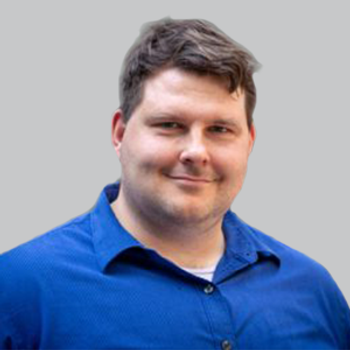
Adam Naj, PhD, genetic epidemiologist at the University of Pennsylvania, discussed the importance of collecting genetic data from diverse ancestries to investigate the risk of Alzheimer Disease.
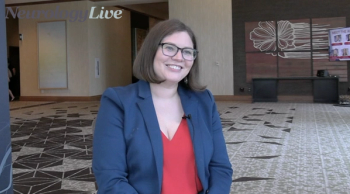
The associate professor at Yeshiva University and Albert Einstein College of Medicine discussed the significance of motivational interviewing as a means for providers to engage with their patients and the harmful impact of societal stereotypes on individuals with migraine. [WATCH TIME: 5 minutes]
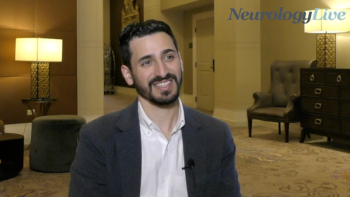
The director of the Movement Disorders Center at Baylor University Medical Center in Dallas, a part of Baylor Scott & White Health, talked about the dilemma of stratifying patients with Parkinson disease based on various criteria and emphasized the need for a consensus on classification. [WATCH TIME: 3 minutes]
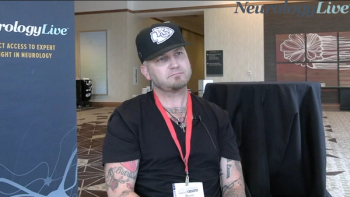
The professor of anesthesiology at Washington University in St. Louis provided perspective on the respect and approach that comes with conducting research in underserved or impoverished communities. [WATCH TIME: 4 minutes]
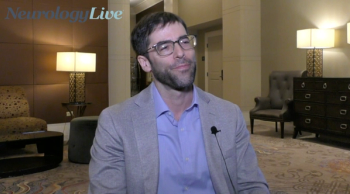
The director of movement disorders at the Banner Sun Health Research Institute talked about alternative approaches for treating essential tremor beyond medications, and developments in the diagnostic criteria for Lewy body disorders. [WATCH TIME: 5 minutes]

The associate professor of neurology at the Indiana University School of Medicine discussed the screening paradigm for Alzheimer disease, and the reluctancy to use new digital tools over traditional methods. [WATCH TIME: 6 minutes]
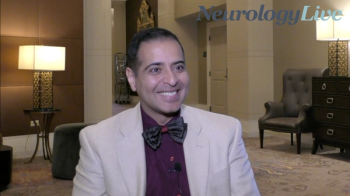
The professor of neurology and residency program director at MedStar Georgetown University Hospital spoke to the evolution of the utility of botulinumtoxins in the treatment of patients with Parkinson and other movement disorders. [WATCH TIME: 4 minutes]
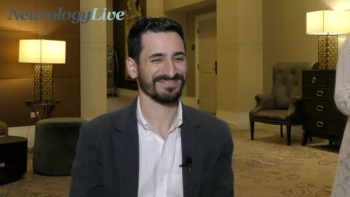
The director of the Movement Disorders Center at Baylor University Medical Center in Dallas, a part of Baylor Scott & White Health, discussed patient reluctance towards new treatments for Parkinson disease and the role of education in defining treatment expectations for patients. [WATCH TIME: 4 minutes]

As a recap from AAIC 2023, get caught up on some of the latest news in neurology as the NeurologyLive® team shares some of our data updates.